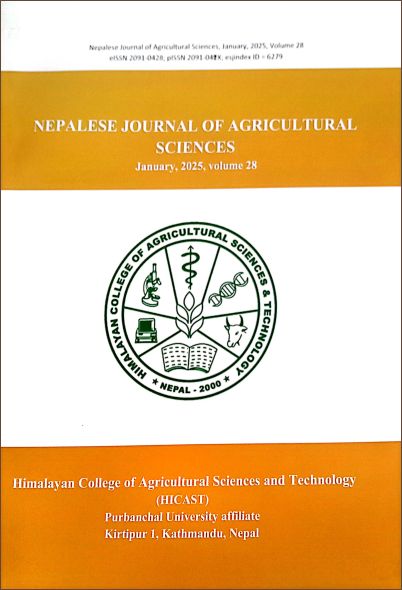Adoption and Impact of Integrated Pest Management in Tomato Cultivation in Lalitpur and Bhaktapur Nepal
DOI:
https://doi.org/10.3126/nepjas.v28i1.77624Keywords:
Adoption, agricultural challenges, Farmer's knowledge, Peel management, TomatoAbstract
This study evaluates the knowledge, adoption attitudes, practices, and challenges of Integrated Pest Management (IPM) in controlling insect pests in tomato cultivation in two districts of Kathmandu Valley, Nepal. Conducted between May 25 and June 30, 2024, in Bhaktapur and Lalitpur districts of Bagmati Province, the research involved 90 commercial tomato farmers selected through purposive random sampling. Data were collected using semi-structured questionnaires and interviews. The findings revealed that 82% of farmers in Lalitpur and 89% in Bhaktapur lacked adequate knowledge and awareness of IPM principles. Limited access to resources (39%) and high initial costs (33%) were significant obstacles, alongside regulatory and policy challenges (26%). The study also identified key pests, with Tuta absoluta being the most damaging (36%), followed by Bemisia tabaci (29%), Helicoverpa armigera (19%), and Aphis gossypii (13%). The results highlight the urgent need for targeted IPM training, improved resource access, and stronger policy support to promote sustainable pest management in tomato farming.




